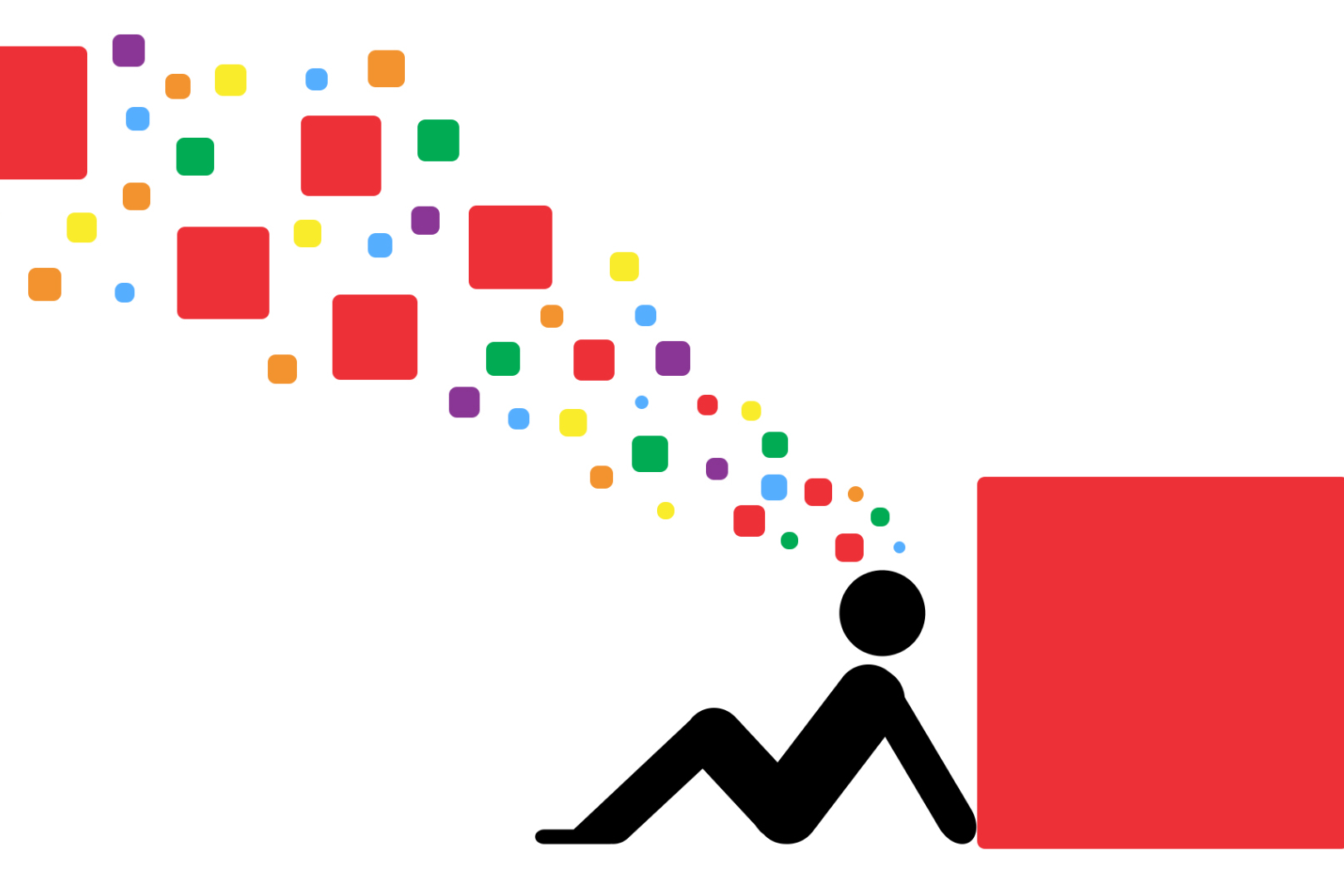The Asymmetric Risk of Coming Out in Queer and Psychedelic Communities
The risk of coming out as queer is grossly unequal to the risk of disclosing as a psychedelic user.
This is part 5 of the Coming Out of the Psychedelic Closet series. Intro | Part 2 | Part 3 | Part 4 | Part 6 | Conclusion

Psymposia is a 501(c)(3) nonprofit research and media organization that offers critical perspectives on drugs, politics, and culture. We rely on contributions from our readers and listeners. Your support is vital to sustaining Psymposia.
Support Psymposia’s independent journalism on Patreon and help us drive the Mystery Machine! We’re a bunch of meddling kids who are unmasking the latest shenanigans on the psychedelics beat.
In Coming Out of the Psychedelic Closet: Psychedelics and Identity Politics, Nese Devenot posits a correlation between coming out as LGBTQ and coming out as a psychedelic user. In so doing, she proposes to map the identity of ‘psychedelic people’ and the movement toward legalization and social acceptance of psychedelics onto other identity-based claims for human rights protections and the civil rights movements coalesced through these claims. For her, ‘psychedelic people’ are doubly oppressed through drug war policies and social stigma against the psychedelic experience. She argues, psychedelic users can and must assume their rightful place in the fight against cultural hegemony and oppression.
I contend that the risk of coming out as queer is grossly unequal to the risk of disclosing as a psychedelic user.
Though Dr. Devenot briefly addresses queer critiques of her argument, I aim to demonstrate that she does not go far enough in considering the asymmetry of risk inherent within living an authentic life as each identity. Her claim for adopting the language and tactics of queer struggle for the psychedelic cause constitute an inapposite appropriation, rather than a mutually agreeable contribution to the civil rights discourse.
Dr. Devenot’s impetus for correlating queer and psychedelic identities is her belief that they share a number of central qualities that transcend their differences. Both are not normal as defined by current Western standards. Both are hidden, insofar as it is not always immediately apparent if someone is queer or psychedelic-minded. To live authentically, both must tell others about this part of themselves.
Disclosing one’s true identity can be immensely freeing. In the context of queerness, it has been described as “an act of bravery, authenticity, and openness.”1 Dr. Devenot quotes Sandra Lee Bartky describing similar emotions vis-à-vis sharing the psychedelic experience: “There is an inexpressible relief in ‘coming out.’” That feeling of freedom, of living authentically, cannot and must not be discounted. However, coming out, as what, matters.
Disclosing as a psychedelic user can have consequences. Employers who include these substances on occupational drug tests can leverage the results in hiring and firing decisions. Use of these illicit compounds can result in legal prosecution. The War on Drugs currently powers the prison industrial complex; in 2011, 48% of federal inmates were serving for drug offenses.2 However, hallucinogen-driven arrests appear to be rare. A review of published legal cases found that, in substantially all cases noting hallucinogen use, the impetus for arrest was sexual assault or drug deals turned violent, and not the illegality of the substance.3 The Bureau of Justice Statistics reports that only 1% of adults on probation were under the influence of hallucinogens (where hallucinogens include PCP) during their committed offense.4
It is critical to note who is incarcerated by anti-drug laws. While white Americans are more likely to use drugs than black/African Americans, they are approximately three times less likely to be arrested for possessing them.5
She mentions the racial/ethnic demographics of psychedelic users, a claim supported by the 2011 National Survey on Drug Use and Health, which found that 17.2% of whites and 6.7% of black/African Americans had used hallucinogens.6
Racial incarceration patterns, the drug war’s focus on other substances, and the demographics of people who characteristically engage with psychedelic materials create the backdrop against which psychedelic users feel free or inhibited in disclosing their psychedelic use. But taken together, the above evidence suggests that the chances of a psychedelic person experiencing legal persecution are extremely low.
In contrast, living authentically as LGBTQ can result in violence and death.
The streets of America are crowded with homeless youth who have been rejected by their families because of whom they love, whom they like to fuck, or how they display their gender. Suicide is the leading cause of mortality in lesbian and gay youth, who are four times more likely to attempt suicide than their heterosexual peers. Almost half of transgender youth have considered suicide, with one-quarter reporting at least one attempt.7
Lesbian and gay adults are two to six times more likely to commit suicide than heterosexual adults. 8
In 2013, hate crimes motivated by sexual orientation were eclipsed only by those driven by race. These crimes are more likely to be violent than those motivated by other characteristics and are significantly under-reported.9 Over half (54%) of LGBTQ people report fear of being the victim of a hate crime.10 Transgender populations are at particular risk, with homicide rates against this community currently at an all-time high in the United States.11

These statistics indicate the extreme vulnerability queer people face when they seek to live authentically. Dr. Judith Butler argues that certain abnormal identities are so disruptive to the norm’s definition of itself that they are not seen by the majority as human. She explains:
“.…to be called unreal and to have that call, as it were, institutionalized as a form of differential treatment, is to become the other against whom (or against which) the human is made. It is the inhuman, the beyond the human, the less than human, the border that secures the human in its ostensible reality.”12
Butler recently applied this model of violent normative identity formation to the current transgender homicide crisis. In “Why Do Men Kill Trans Women? Gender Theorist Judith Butler Explains,” Butler describes how the “Other” identity of transgender women disrupts the “Normal” identity of cisgender male so profoundly that for some, violence is the only remaining response.13
It is this perceived risk to the norm that results in actual, quantifiable risk to the “Other” identity that profoundly differentiates queer identity from psychedelic identity, and as a result the queer and psychedelic movements. While any threat of violence is a threat, bodies experience radically different types and levels of vulnerability. These differences matter.
Rebecca Solnit beautifully lays out the important concept of a continuum of violence in Men Explain Things To Me. For Solnit, both talking down to a woman and raping her exist on the same anti-feminist continuum. But there is a very real, very obvious difference: in one example, you leave the dinner party disgruntled, and in the other, your body has been violated. Should retaliation in each of these instances be of the same intensity? Or should the punishment match the crime, in some sense?
I celebrate everyone who seeks to share their experience, whether to normalize it or to simply share a piece of oneself and live more authentically. All lives should be protected, and activists should organize to ensure this. But it serves no one to forget that the threat of being designated “a weird druggie” or even losing your job is not the same as the threat of being murdered in the street.
Read part 6: Coming Out in Solidarity
Hey! Before you go… Psymposia is a 501(c)(3) non-profit media organization that offers critical perspectives on drugs, politics, and culture. We strive to ask challenging questions, and we’re committed to independent reporting, critical analysis, and holding those who wield power accountable.
Our perspectives are informed by critical analysis of the systemic crises of capitalism that have directly contributed to the unmitigated growth of addiction, depression, suicide, and the unraveling of our social relations. The same economic elite and powerful corporate interests who have profited from causing these problems are now proposing “solutions”—solutions which both line their pockets and mask the necessity of structural change.
In order for us to keep unpacking these issues and informing our audience, we need your continuing support. You can sustain Psymposia by becoming a supporter for as little as $2 a month.
Emma Kaywin
Emma Kaywin is a sexual health writer and activist based out of Brooklyn. She spends her days writing grants to support HIV positive and at-risk New Yorkers and her evenings thinking about how communication is the best lubrication. She is a frequent contributor to Bustle.





